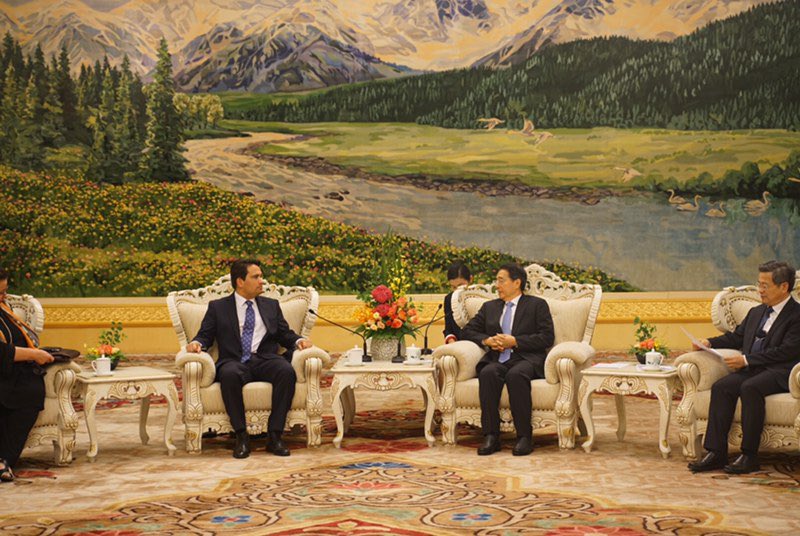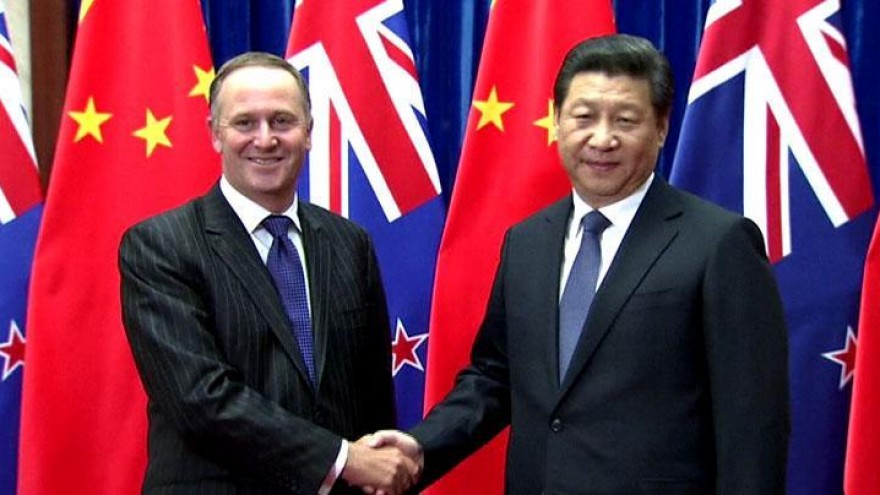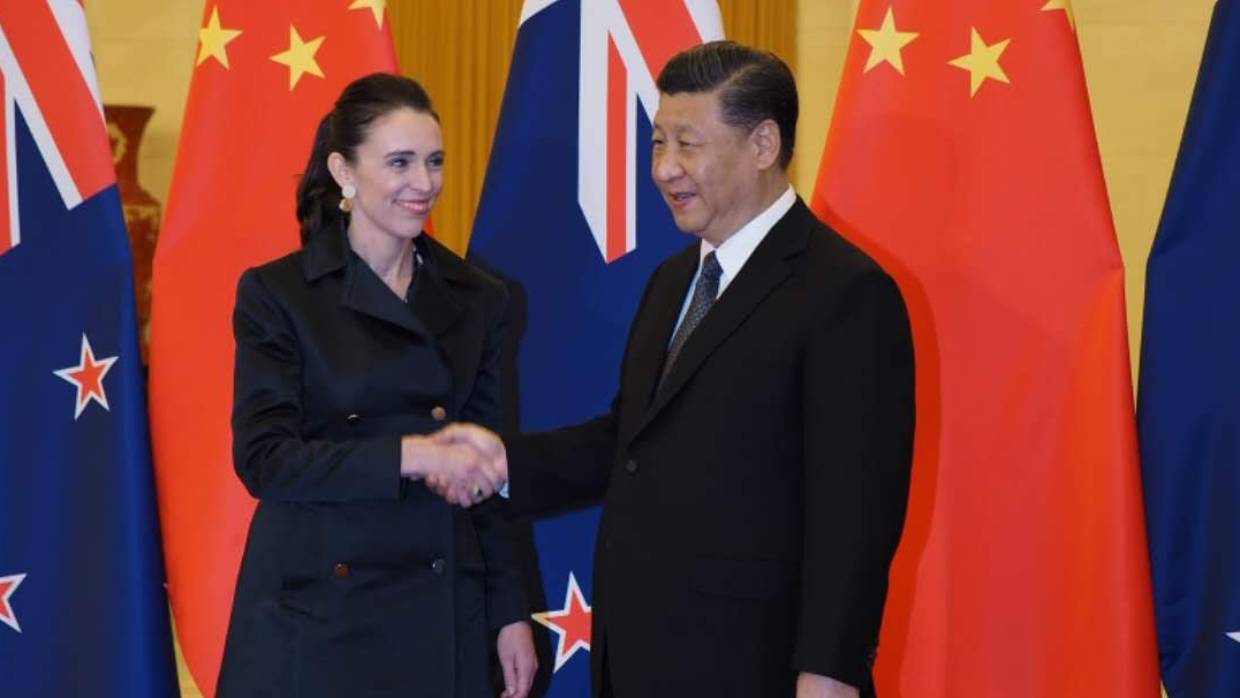Andrew Sullivan has written an article about distancing ourselves from China. He starts by talking of the death of globalisation:
The nation-state was beginning to reassert itself before, but COVID-19 has revealed its indispensability. Europeans realized, if they hadn’t already, that a truly continental response was beyond the E.U. Borders were suddenly enforced, resources hoarded by individual nations, and the most important decisions were made by national governments, in national interests. Americans, for their part, saw their own dependence on foreign countries, especially dictatorships, for core needs — like medicine, or medical equipment — as something to be corrected in the future. Japan is now spending a fortune paying its own companies to relocate from China to the homeland.
I think this is something that must be done, especially for essential supplies like medicines. But Sullivan also explains why it must go much further than that.
And for both Europe and America, the delusions that sustained the 21st-century engagement with China have begun to crack. We still don’t know how this virus emerged — and China hasn’t given any serious explanation of its origins. What we do know is that the regime punished and silenced those who wanted to sound the alarm as early as last December, and hid the true extent of the crisis from the rest of the world. There had been 104 cases in Wuhan by December 31, including 15 deaths. Yet as late as mid-January, the Chinese were insisting, in the words of the World Health Organization, that there was “no clear evidence of human-to-human transmission.” On January 18, despite the obvious danger, the Chinese dictatorship allowed a huge festival in Wuhan that drew tens of thousands of people.
On January 23, President Xi locked down all air traffic from Wuhan to the rest of China — but, as Niall Ferguson pointed out, not to the rest of the world. It’s as if they said to themselves, “Well, we’re going under, so we might as well bring the rest of the world down with us.” This is not the behavior of a responsible international state actor. Trump’s ban on Chinese travel was better than nothing, but it did not prevent over 400,000 non-Chinese from arriving in the U.S. from China as COVID-19 was gaining momentum. It’s fair to say, I think, that after the immediate, unforgivable cover-up in China, a global pandemic was inevitable.
And yet we have our own government mimicking those same lines about a lack of community transmission. They delude themselves by falsely stating that there are links to international travel, as if the travel caused the infection, rather than transmission from person to person.
… the core source of the destruction was and is Beijing. Bringing a totalitarian country, which is herding its Muslim inhabitants into concentration camps, into the heart of the Western world was, in retrospect, a gamble that has not paid off. I remember the old debate from the 1990s about how to engage China, and the persuasiveness of those who believed that economic prosperity would lead to greater democracy. COVID-19 is the final reminder of how wrong they actually were.
The Chinese dictatorship is, in fact, through recklessness and cover-up, responsible for a global plague and tipping the entire world into a deep depression. It has also corrupted the World Health Organization, which was so desperate for China’s cooperation it swallowed Xi’s coronavirus lies and regurgutated them. At the most critical juncture — mid-January — the WHO actually tweeted out Communist Party propaganda: “Preliminary investigations by the Chinese authorities have found no clear evidence of human-to-human transmission of the novel Coronavirus.” On the same day, another WHO official was telling the world that there was “limited spread” of COVID-19 by human-to-human transmission, and alerted hospitals about the risk of super-spreading the virus. And so the virus has forced us to accept another discomforting reality: Integrating a communist dictatorship into a democratic world economy is a mug’s game. From now on, conscious decoupling is the order of the day.
This is going to present a problem for our own National Party which, in stark contrast with its founding principles, has been very chummy with the Chinese Communist Party and also availed themselves of millions of dollars from CCP linked persons and companies.

Will Simon Bridges stand up to the Chinese? Will any New Zealand politician stand up to the Chinese?
Helen Clark‘s government brought us the free trade agreement with China and John Key embraced it with vigour. And so begun the New Zealand politicians love affair with China. Our leading and major companies exported their expertise and intellectual property to China, and we outsourced our manufacturing and supply lines to China. None more so than Fonterra and Fisher & Paykel. Even our lawnmowers are now made in China. Fisher & Paykel is now owned 90% by Chinese corporate Haier. Fonterra sends over a quarter of its product directly to China. They boast of their footprint in China:
More than just infant milk formula, Fonterra China is worth nearly $4 billion today.
China takes a quarter of every drop of milk Fonterra exports. Fonterra is important to China too – we account for 36% of all dairy imports.
We’re making a difference in the lives of 150 million people across China.
That’s nice but look at the impact China has now had on us. Our economy wrecked, people unemployed, and businesses ruined. All in pursuit of welcoming China into our world of trade. Was it a price too high to be paid? I think so, though I suspect globalists like John Key and Helen Clark will argue long and hard against any moves to decouple ourselves from China. They should be ignored, even better they should be told to shut up. They’ve had their turn, now it is up to braver politicians to fix this.

Andrew Sullivan is right, we must decouple our economy and our supply lines from China. Sure, this will mean that goods at The Warehouse will need to be sourced elsewhere and will become more expensive. It means that the mad headlong rush to outsource everything to China must end, and we must also stop selling off our intellectual property to China. The largest companies must bring their manufacturing and products home.
The next steps will need to be political. There are now discussions being had about holding China to account. Those discussions include sovereign prosecutions at The Hague, but also the reneging on sovereign debt to China, erecting new trade barriers, confiscation of Chinese Government assets and the assets of Chinese Communist Party aligned companies. This is an opportunity to wrest control of the Pacific from the grasping and greedy hands of China. It needs to be done, but it needs politicians with courage.
Now is their time. Who will step forward?

